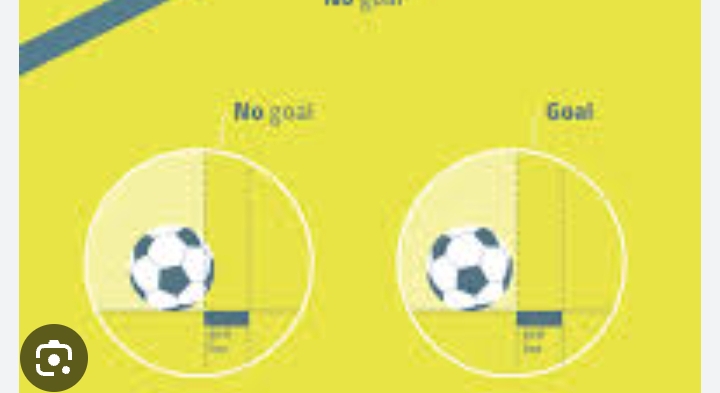Football Rules: Understanding Key Terms and Offenses. part2
Football Rules: Understanding Key Terms and Offenses
Introduction
Football, also known as soccer, is a globally popular sport played by millions of individuals across the world. While the objective of the game is simple – score more goals than the opposing team – there are various rules and regulations that players must adhere to. In this article, which is a continuation of the previous article on football rules, we will delve into some specific terms and offenses commonly encountered in football, providing a comprehensive understanding of their meaning and implications.
We have previous explained 11 rules in our first article and we continue from rule number 12 here.
12. What is a backpass in football?
In football, a backpass refers to a specific type of pass made by a player to their own goalkeeper using their feet. The backpass rule was implemented to prevent time-wasting tactics, wherein players would deliberately pass the ball to their goalkeeper, who would then pick it up and waste valuable seconds. According to the rule, a goalkeeper is not allowed to pick up the ball if it has been intentionally passed back to them by a teammate using their feet. If such an offense occurs, the opposing team is awarded an indirect free kick from the spot where the goalkeeper handled the ball.
13. What is a professional foul in football?
A professional foul, often referred to as a cynical foul, is a deliberate and tactical foul committed by a player to prevent an opponent from gaining an advantage. This type of foul typically occurs when an attacking player is in a promising position, and the defender purposefully commits a foul to halt the progress of the attacking play. Professional fouls are usually considered unsporting behavior and are typically punished with a yellow or red card, depending on the severity of the offense.
14. What is simulation in football?
Simulation, commonly known as diving or embellishment, refers to the act of a player feigning or exaggerating a foul or injury in order to deceive the referee and gain an unfair advantage. This unsportsmanlike behavior is considered a form of cheating and is heavily frowned upon in football. When a player is caught simulating, they can receive a yellow card for their deceptive actions. However, if the simulation leads to a penalty kick being awarded, the offending player may face further disciplinary action.
15. What is dissent in football?
Dissent in football refers to a player’s disrespectful or challenging behavior towards the match officials, such as the referee or assistant referees. This can include verbal abuse, aggressive gestures, or excessive questioning of the officials’ decisions. Dissent is a breach of sportsmanship and can disrupt the flow of the game. Players who engage in dissent often receive a yellow card as a warning, and repeated or severe dissent may lead to a red card and subsequent expulsion from the match.
16. What is ungentlemanly conduct in football?
Ungentlemanly conduct encompasses a broad range of unsportsmanlike behaviors displayed by players during a football match. It includes actions such as using offensive language, provoking opponents, or engaging in aggressive behavior outside the scope of normal gameplay. Additionally, ungentlemanly conduct may involve actions that incite violence or endanger the safety of others. Players found guilty of ungentlemanly conduct typically receive a yellow or red card, depending on the severity of the offense.
17. What is denying an obvious goal-scoring opportunity in football?
In football, denying an obvious goal-scoring opportunity refers to a situation where a player or team prevents an opponent from scoring a goal through illegal means. This typically involves fouls or other misconduct that interferes with a clear and legitimate goal-scoring opportunity.
18. What is serious foul play in football?
Serious foul play in football refers to any aggressive or reckless action that endangers the safety of an opponent. It involves using excessive force, such as tackling from behind, lunging with studs showing, or making a dangerous challenge that puts the opponent at risk of injury. Serious foul play often results in a direct red card, leading to the player being sent off the field.
19. What is violent conduct in football?
Violent conduct in football refers to any deliberate act of aggression or physical force against another player, match official, or any other individual involved in the game. This includes actions such as punching, kicking, elbowing, headbutting, or any other intentional violent behavior. Violent conduct is considered a severe offense and is typically punished with a red card and subsequent disciplinary action.
20. What is spitting at an opponent or match official in football?
Spitting at an opponent or match official in football is a highly disrespectful and unsportsmanlike act. It involves deliberately expelling saliva from the mouth with the intention of hitting another person. This behavior is considered a form of misconduct and can lead to severe penalties, including a red card and further disciplinary measures.
21. What is biting an opponent or match official in football?
Biting an opponent or match official in football is a rare but highly unacceptable act of aggression. It involves using one’s teeth to intentionally bite another person. This behavior is not only a violation of the rules but also poses serious health risks. Biting an opponent or match official is met with strong disciplinary action, including a red card, suspension, and potential legal consequences.
Read more on football rules in our next post here.
